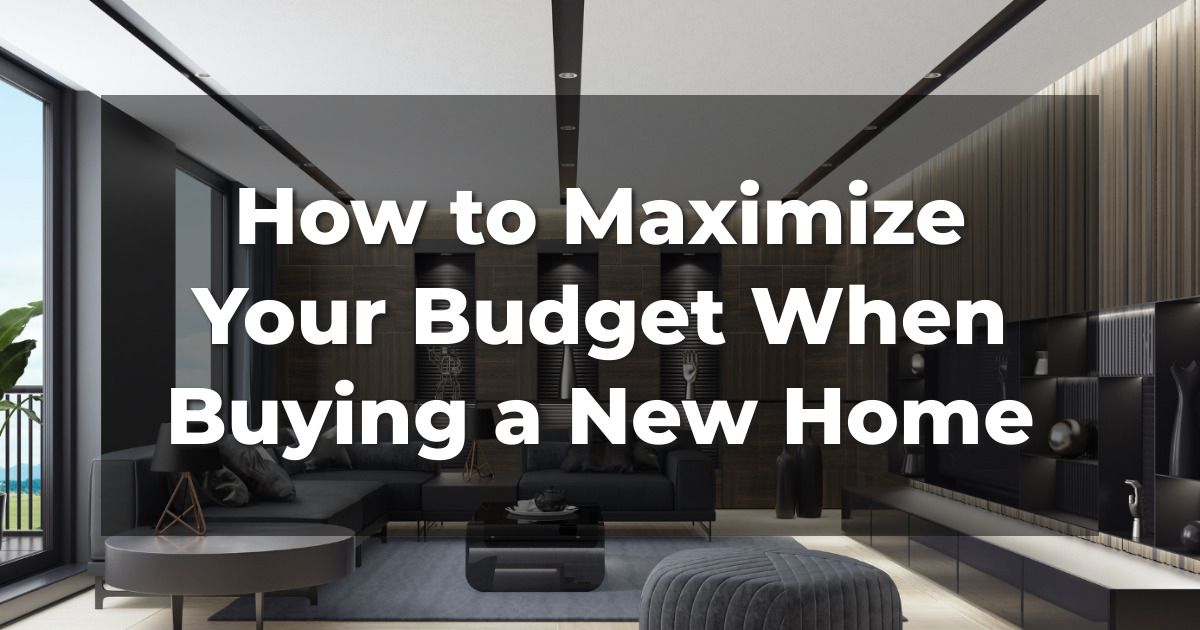
Buying a new home is a huge financial decision, and getting the most out of your budget can make all the difference. Whether you’re a first-time buyer or looking to upgrade, there are smart strategies that can help you stretch your dollars further without compromising on what you want. Here’s how to maximize your budget and still land your dream home.
1. Know Your True Budget
The first step is understanding how much you can actually afford—not just in terms of the mortgage, but the full picture. Factor in property taxes, homeowners insurance, maintenance costs, and any HOA fees. It’s also important to budget for closing costs and moving expenses, which can add up quickly.
Once you’ve accounted for all of these, you’ll have a clear picture of what you can comfortably spend on your home. Getting pre-approved for a mortgage will also help set realistic expectations and give you an edge when making offers.
2. Prioritize Must-Haves vs. Nice-to-Haves
It’s easy to get swept up in the excitement of house hunting, but to stay within budget, it’s important to separate your must-haves from your nice-to-haves. Make a list of the things that are non-negotiable—whether it’s a certain number of bedrooms, a specific school district, or a yard for your dog. Then, create a list of features that would be nice but aren’t deal breakers, like a gourmet kitchen or a finished basement.
By focusing on your core needs, you’ll be less likely to overspend on extras that aren’t essential. And if you do end up with some budget wiggle room, you can always upgrade or add those features later.
3. Look for Up-and-Coming Areas
One of the best ways to maximize your budget is by buying in an area that’s on the rise. These locations often offer lower home prices but have strong potential for future growth. Research areas with planned developments, improving schools, or expanding public transit options—these are often signs that property values could increase over time.
Buying in a less established area can also mean you’ll get more house for your money. Plus, if you’re willing to put in a little work, you might find a fixer-upper that can be transformed into a home that meets all your needs, without blowing your budget.
4. Be Open to Different Types of Homes
It’s easy to get set on one particular style or type of home, but staying flexible can help you get the most for your money. Consider options like townhouses, condos, or older homes that may need some updating. These can often be more affordable than newer, single-family homes in the same area.
If you’re open to a little DIY, you can often find homes that need cosmetic updates for a lower price. A fresh coat of paint, new flooring, or updated fixtures can make a huge difference without costing a fortune, and you’ll end up with a home that’s customized to your style.
5. Don’t Skip the Home Inspection
Cutting corners might seem like a good idea in the short term, but skipping the home inspection is not one of them. An inspection helps uncover potential issues that could end up costing you big in the long run, like faulty wiring, plumbing problems, or foundation issues. It’s better to know what you’re getting into upfront, so you don’t blow your budget on unexpected repairs after moving in.
If the inspection reveals any major problems, you can negotiate with the seller to either fix the issues or lower the price to cover the cost of repairs.
6. Negotiate Closing Costs
Many buyers don’t realize that closing costs are negotiable. Sometimes, you can ask the seller to cover part or all of these costs, especially if you’re in a buyer’s market or if the seller is motivated. Your real estate agent can help you navigate these negotiations and potentially save you thousands of dollars, which you can then put toward your home or moving expenses.
7. Be Ready to Move Fast
In competitive markets, homes that are priced well often get snapped up quickly. To stay within your budget and still get the home you want, you need to be prepared to act fast. Being pre-approved for a mortgage, having a clear idea of your must-haves, and working with a great real estate agent can give you the advantage you need to make a strong offer quickly.
The faster you can move, the less likely you are to get caught in a bidding war that pushes the price beyond your budget.
8. Plan for Future Improvements
If your dream home isn’t quite within your reach, don’t be afraid to think long term. Sometimes, buying a home with good bones in a great location is more important than having every single feature you want right away. You can always upgrade finishes, remodel the kitchen, or add that extra bathroom later on.
By buying a home with potential, you can stay within your current budget while still building toward your dream home over time. Just make sure the upgrades you plan to make are within your long-term budget and that they’ll add value to your home in the future.
Maximizing your home-buying budget takes a little planning and flexibility, but it doesn’t mean you have to sacrifice what’s important to you. By getting clear on your finances, prioritizing your needs, and being open to different options, you can find a home that fits your lifestyle—and your wallet—perfectly.
How far will your budget go?
Curious what you can get for your budget in our market? Reach out, and I'll let you know.


.jpg)



